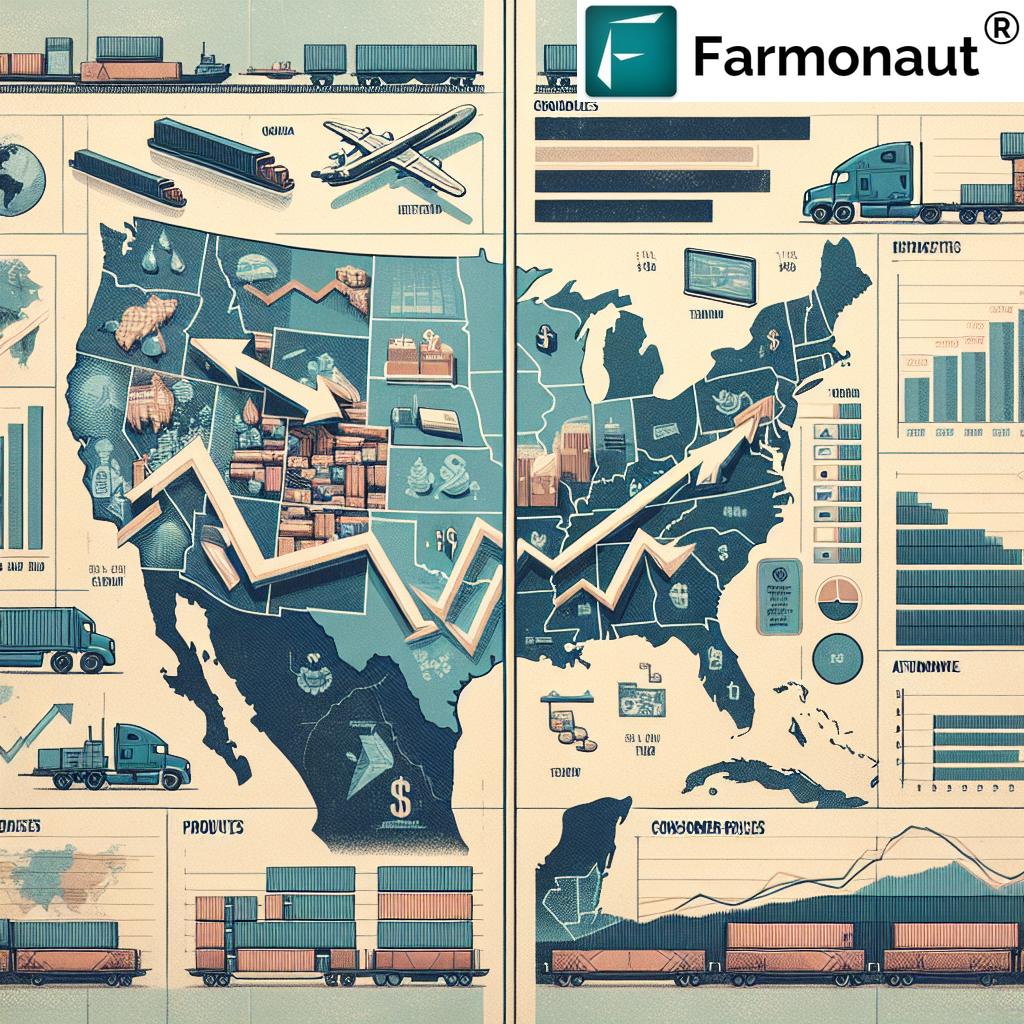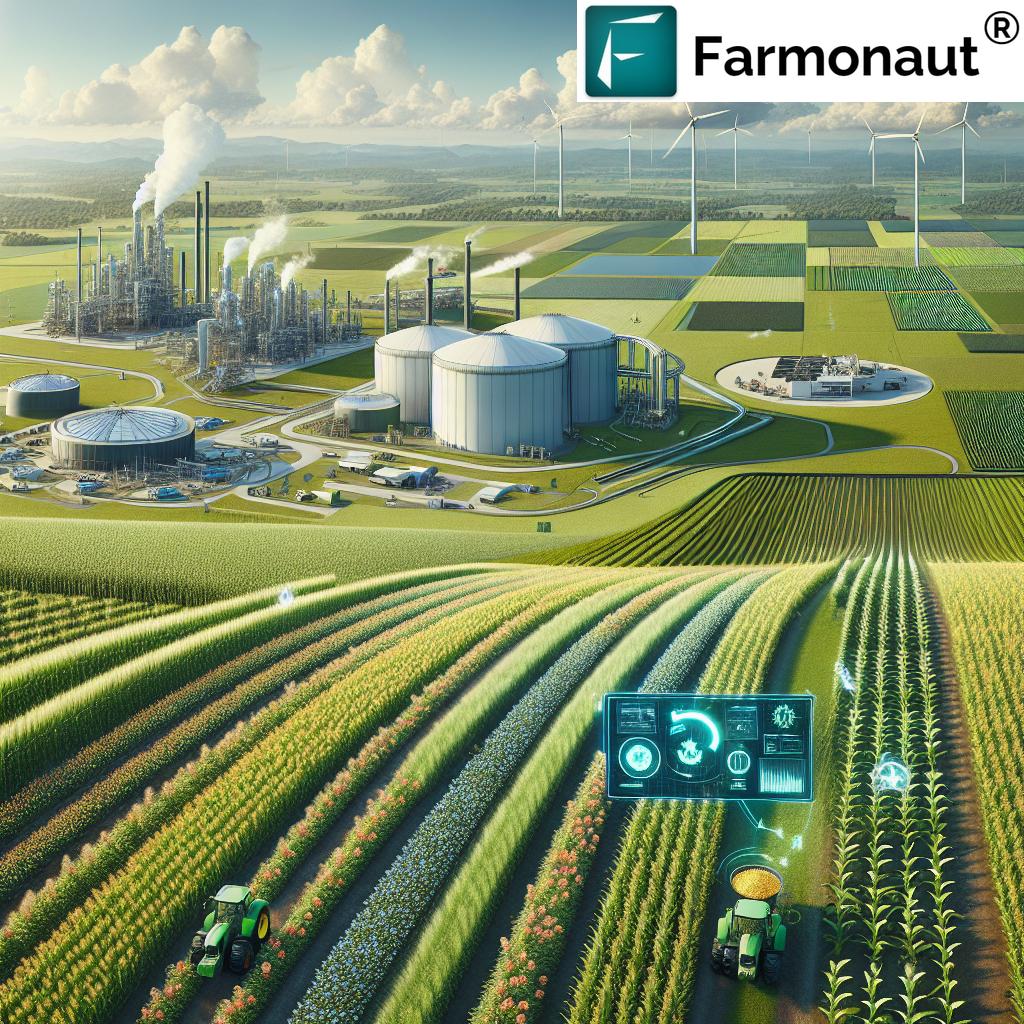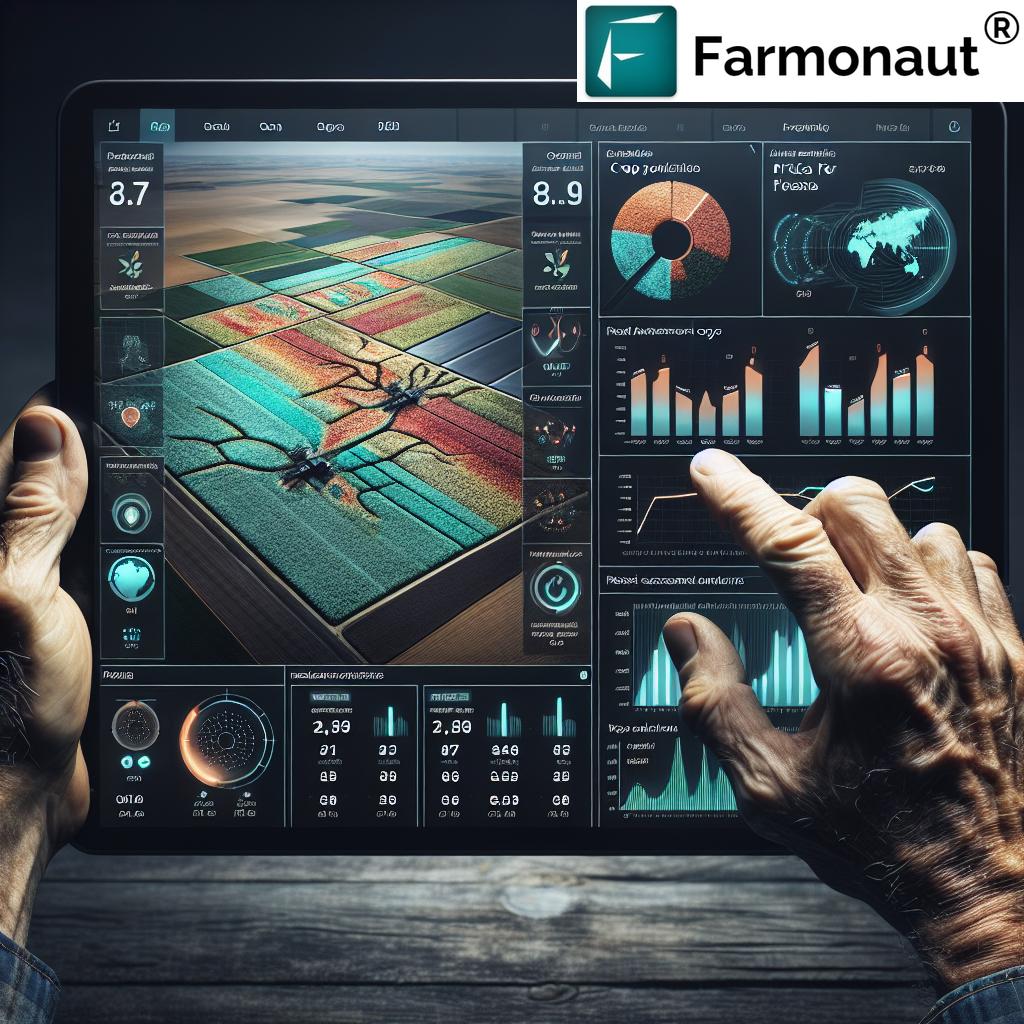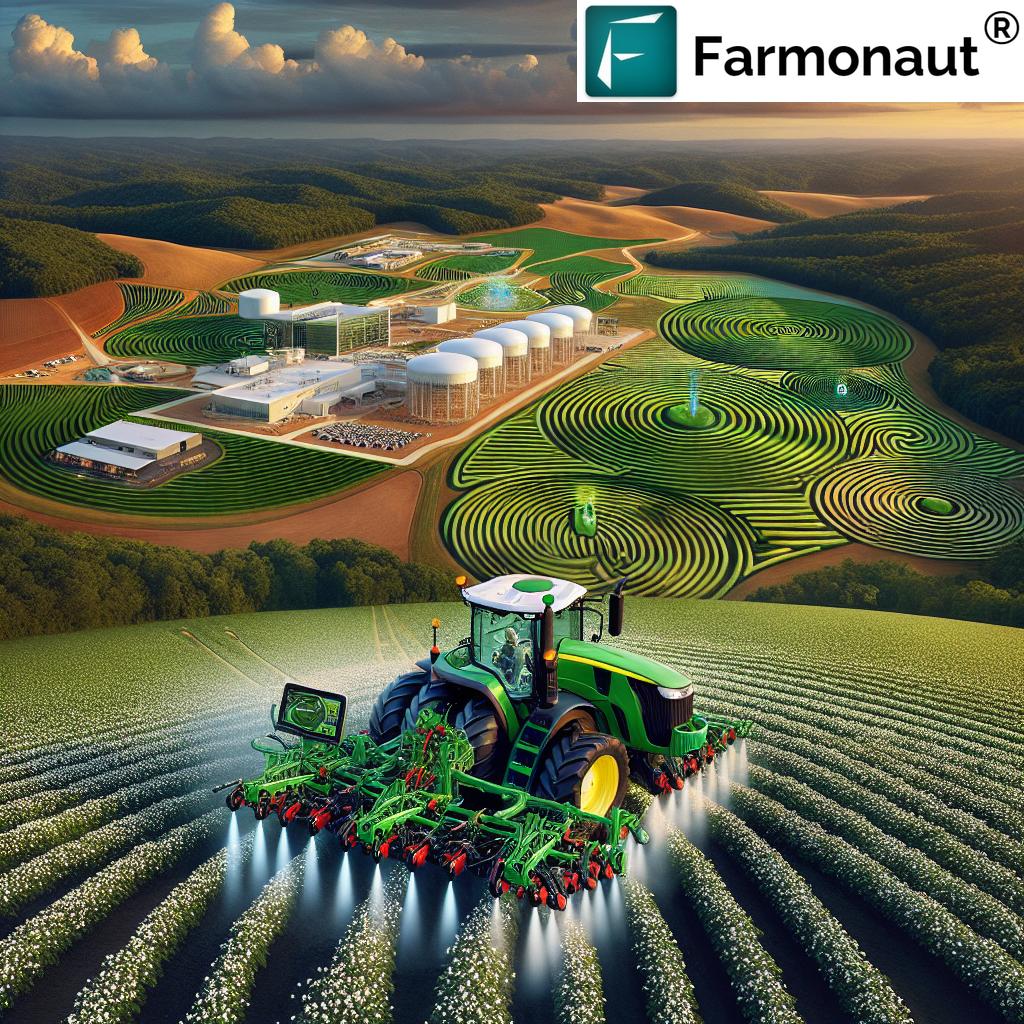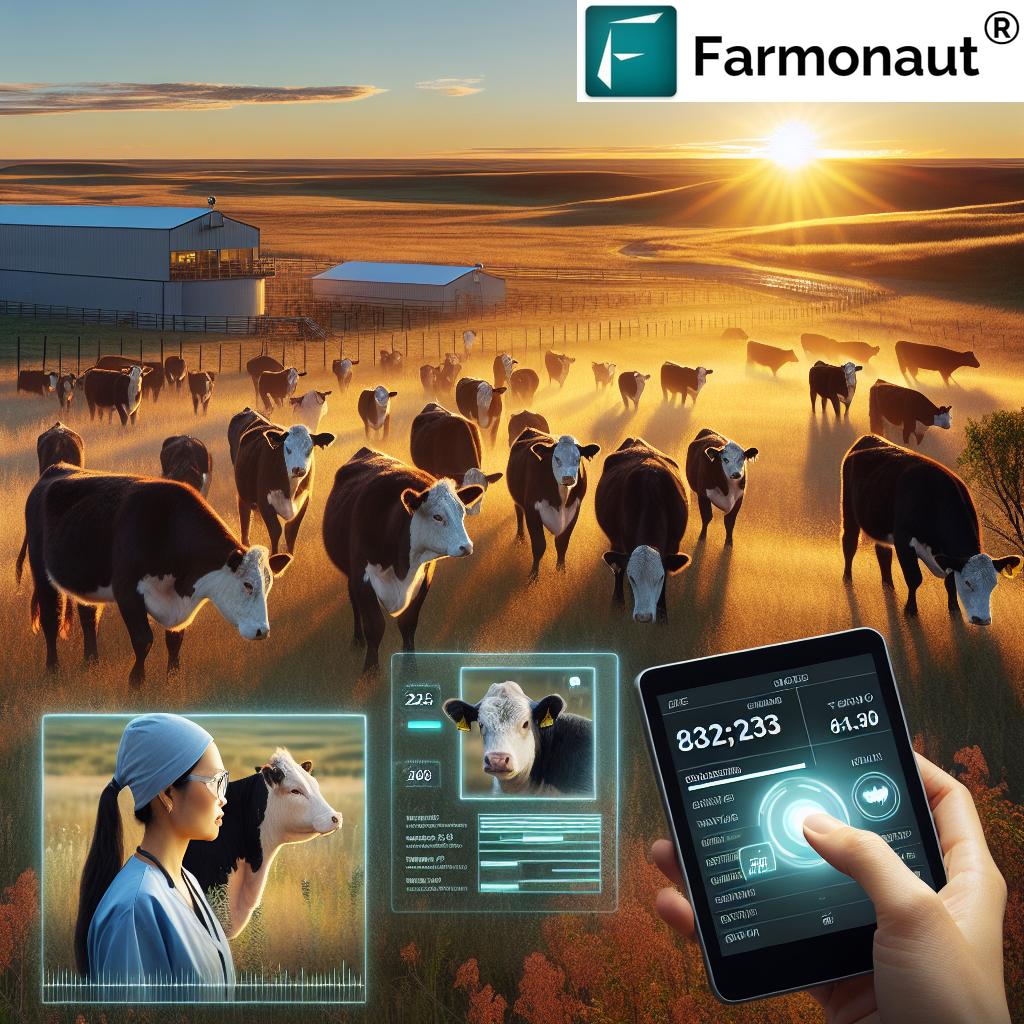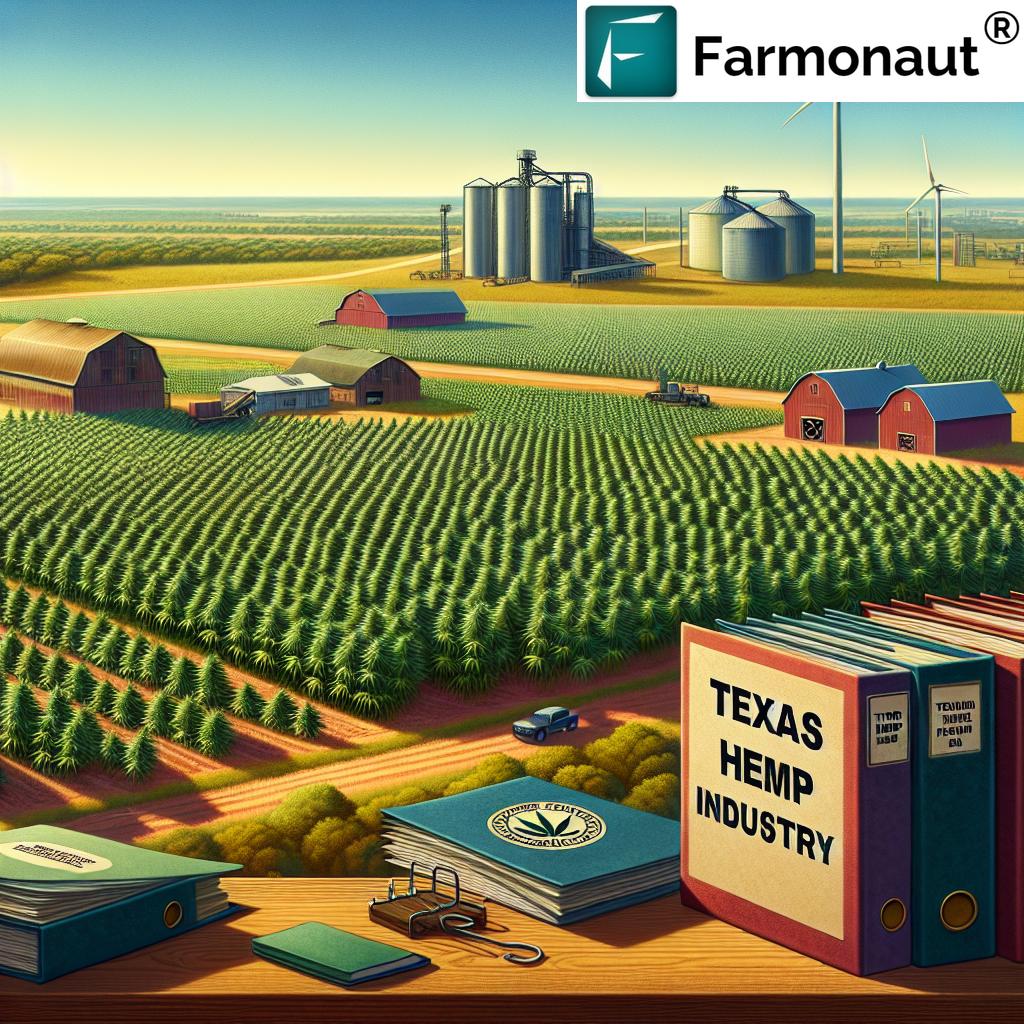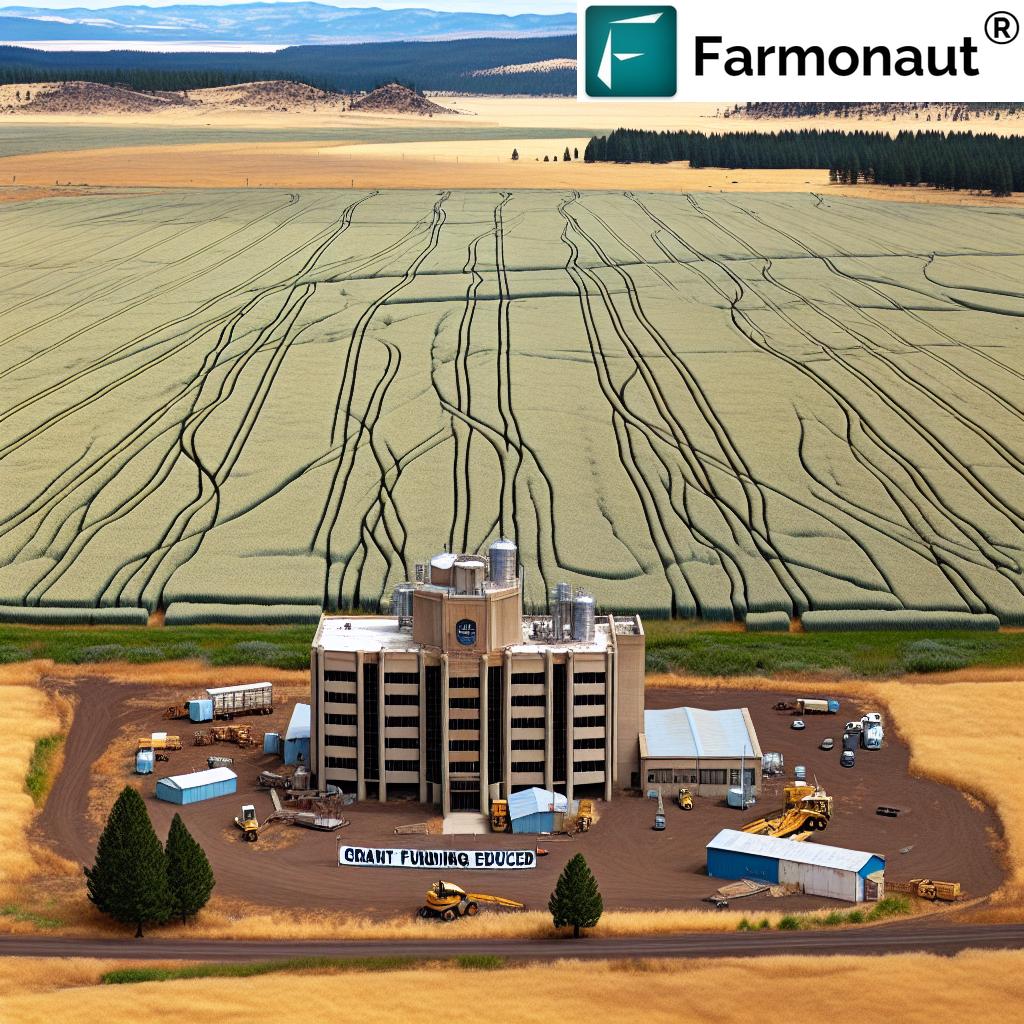
🌾 Introduction to JEEVN AI: A Game-Changer for Texas Wheat Farmers
In the vast expanse of Texas farmlands, where wheat fields stretch as far as the eye can see, a new technological revolution is taking root. Farmonaut’s Satellite-AI Based Farm Intelligence, known as JEEVN AI, is transforming the way Texas wheat farmers approach their craft. This innovative solution is designed to address the unique challenges faced by wheat producers in the Lone Star State, bringing precision and efficiency to the forefront of agricultural practices.
Texas, being the third-largest wheat-producing state in the U.S., with an average annual production of 89 million bushels, stands to benefit significantly from this cutting-edge technology. JEEVN AI harnesses the power of artificial intelligence to provide Texas wheat farmers with precise, actionable insights that ensure their farms thrive in the face of unpredictable weather patterns and market fluctuations.
🛰️ How JEEVN AI Works: Bringing Space-Age Technology to Texas Fields
JEEVN AI’s approach to farm management is as vast and impressive as Texas itself. This cutting-edge AI system integrates satellite intelligence, weather data, local farm information, and various other parameters to deliver precise recommendations tailored to the specific needs of Texas wheat farms.
For Texas wheat farmers, who often manage large acreages, JEEVN AI acts like having a team of experts at their fingertips, guiding them through every step of the farming process. This is particularly valuable given the state’s diverse growing conditions, from the High Plains to the Blacklands.
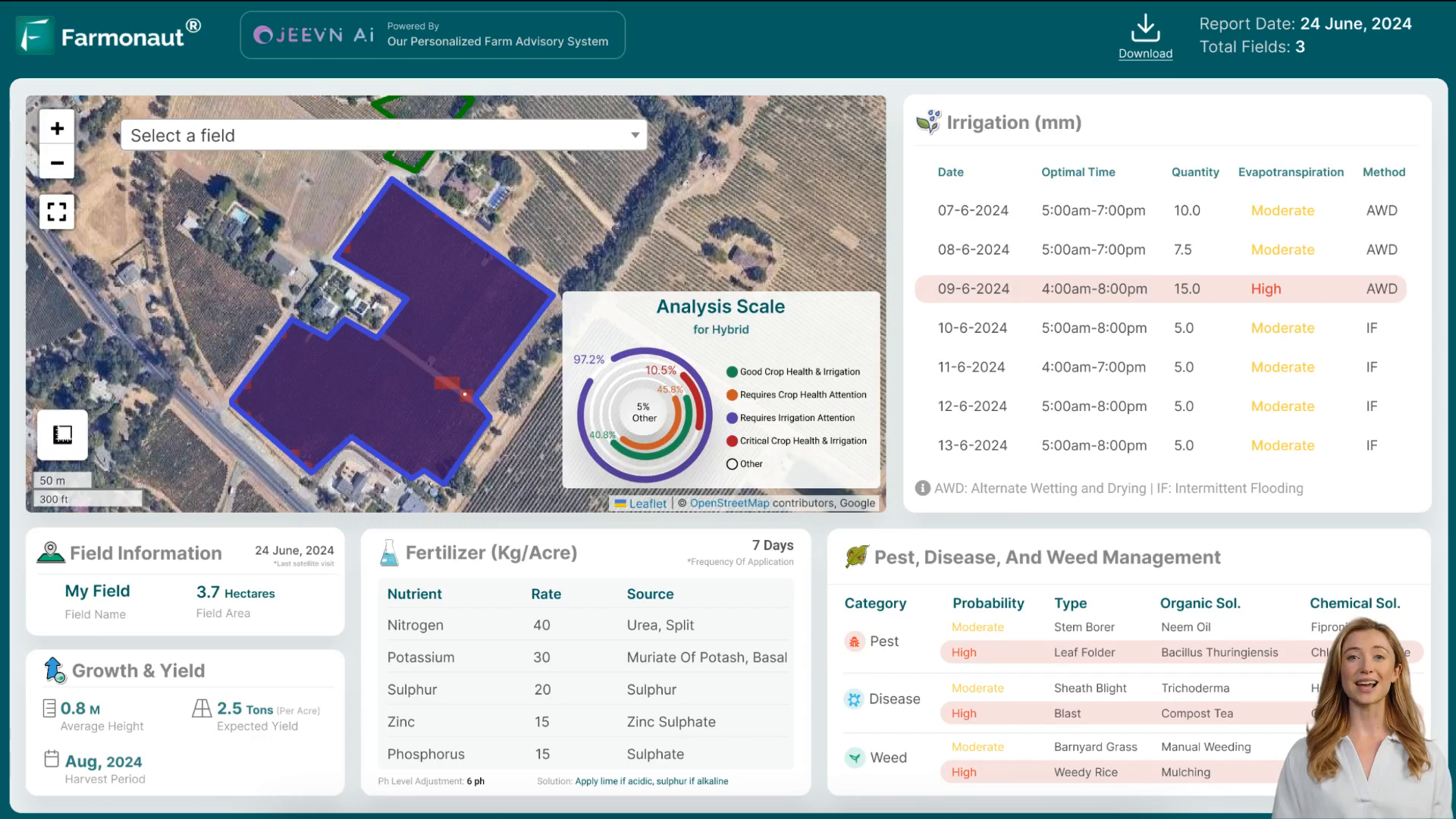
🧪 Soil Nutrient Analysis: Optimizing Texas Wheat Fields
One of JEEVN AI’s most powerful features is its ability to provide detailed insights into soil nutrient levels. This is crucial for Texas wheat farmers, as the state’s varied soil types – from the clay-rich Blacklands to the sandy loams of the High Plains – each have unique nutrient profiles and requirements.
JEEVN AI analyzes the concentrations of essential nutrients such as nitrogen, phosphorus, potassium, zinc, and sulfur. This analysis helps Texas farmers understand what their soil lacks and recommends appropriate fertilization strategies. For instance, if nitrogen levels are low in a particular field, JEEVN AI will recommend the right amount of nitrogen fertilizer to apply, ensuring wheat crops get the nutrients they need for optimal growth.
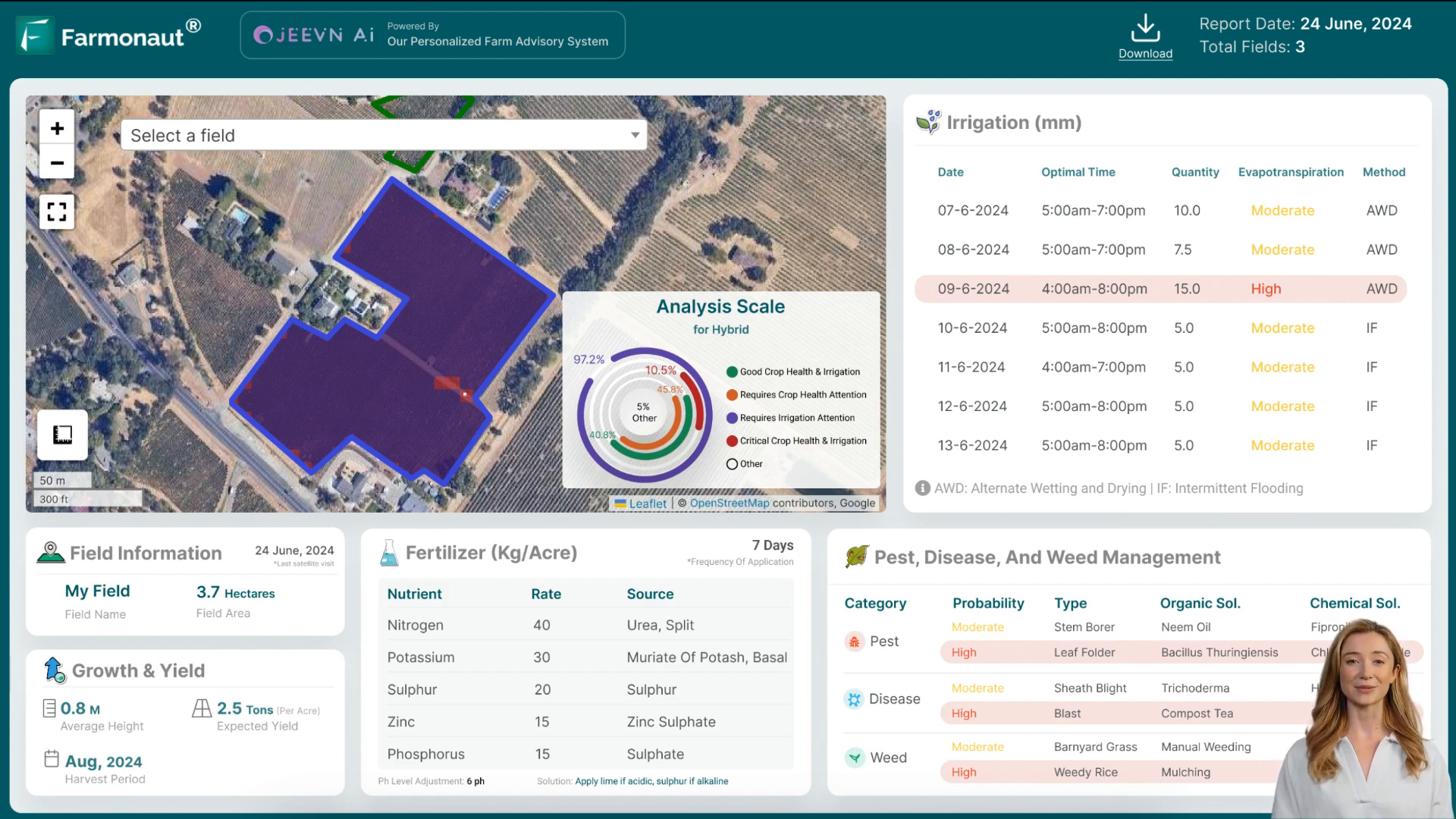
Maintaining optimal nutrient levels is crucial for maximizing wheat yields in Texas, where the average yield is around 30 bushels per acre. With JEEVN AI’s guidance, farmers can potentially increase these yields significantly, boosting the state’s wheat production and farmer profitability.
🔬 Soil pH Management: Balancing Texas Soils for Better Wheat
Soil pH plays a significant role in nutrient availability and overall soil health, a factor that’s particularly important in Texas’s diverse soil landscape. JEEVN AI monitors soil pH levels and offers corrective measures if needed, helping Texas wheat farmers maintain the optimal pH range of 5.5 to 7.0 that wheat prefers.
By keeping the soil pH within the optimal range, Texas farmers can enhance nutrient uptake by wheat plants, leading to better crop performance. If the soil pH is outside the optimal range, JEEVN AI will suggest corrective measures such as lime application to raise pH in the more acidic eastern regions of Texas, or sulfur application to lower pH in the alkaline soils often found in the western parts of the state.
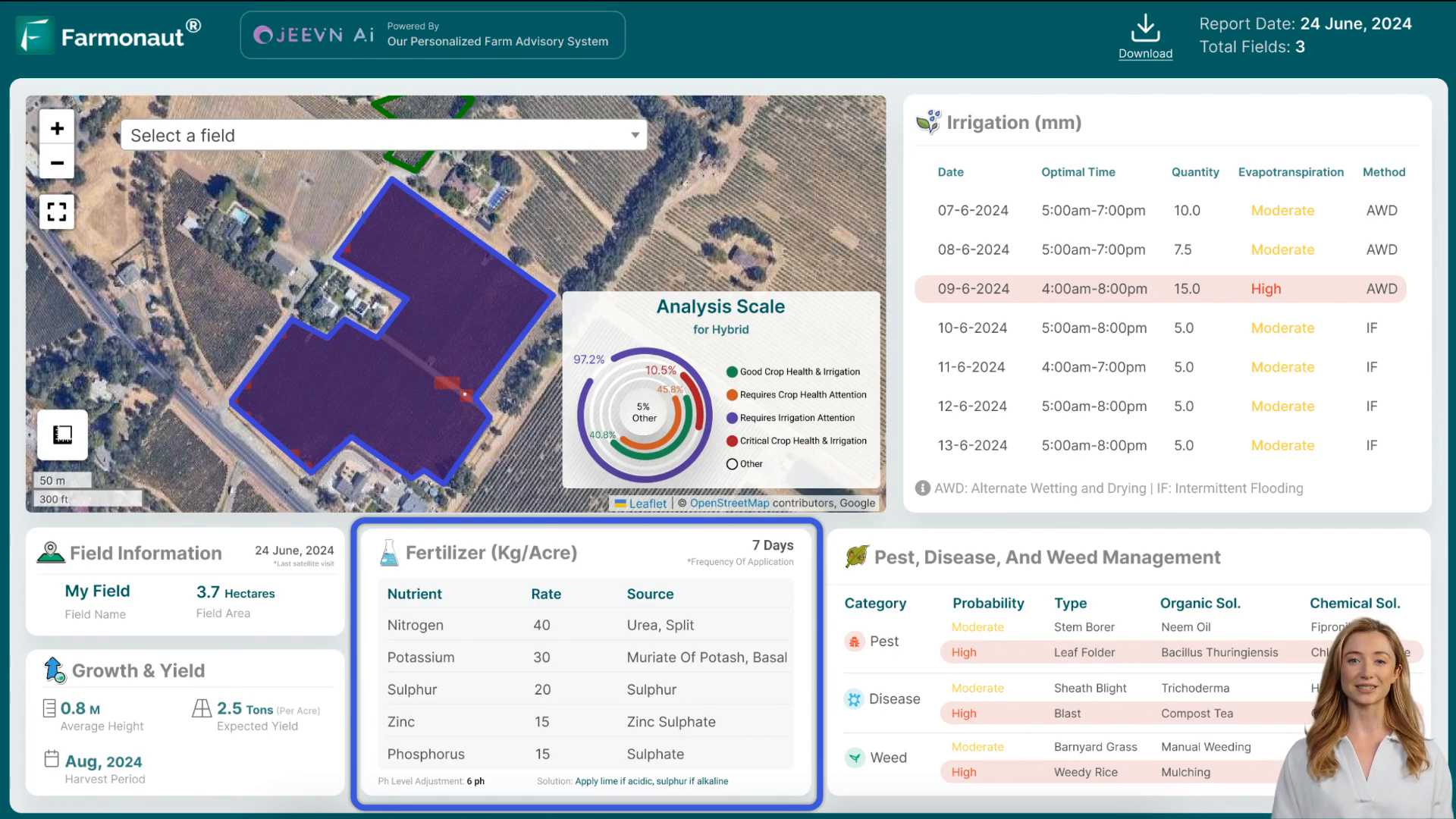
🐛 Early Pest and Disease Detection: Protecting Texas Wheat
One of the most impressive features of JEEVN AI is its ability to identify potential pests and diseases affecting wheat crops. This is particularly valuable in Texas, where wheat crops can face threats from pests like Hessian fly and diseases such as leaf rust and stripe rust.
By analyzing satellite images, weather patterns, and local data, JEEVN AI can predict pest outbreaks and suggest preventive measures. For example, if conditions are favorable for a stripe rust outbreak – a common issue in Texas wheat fields – JEEVN AI will alert farmers and provide preventive measures to protect their crops.
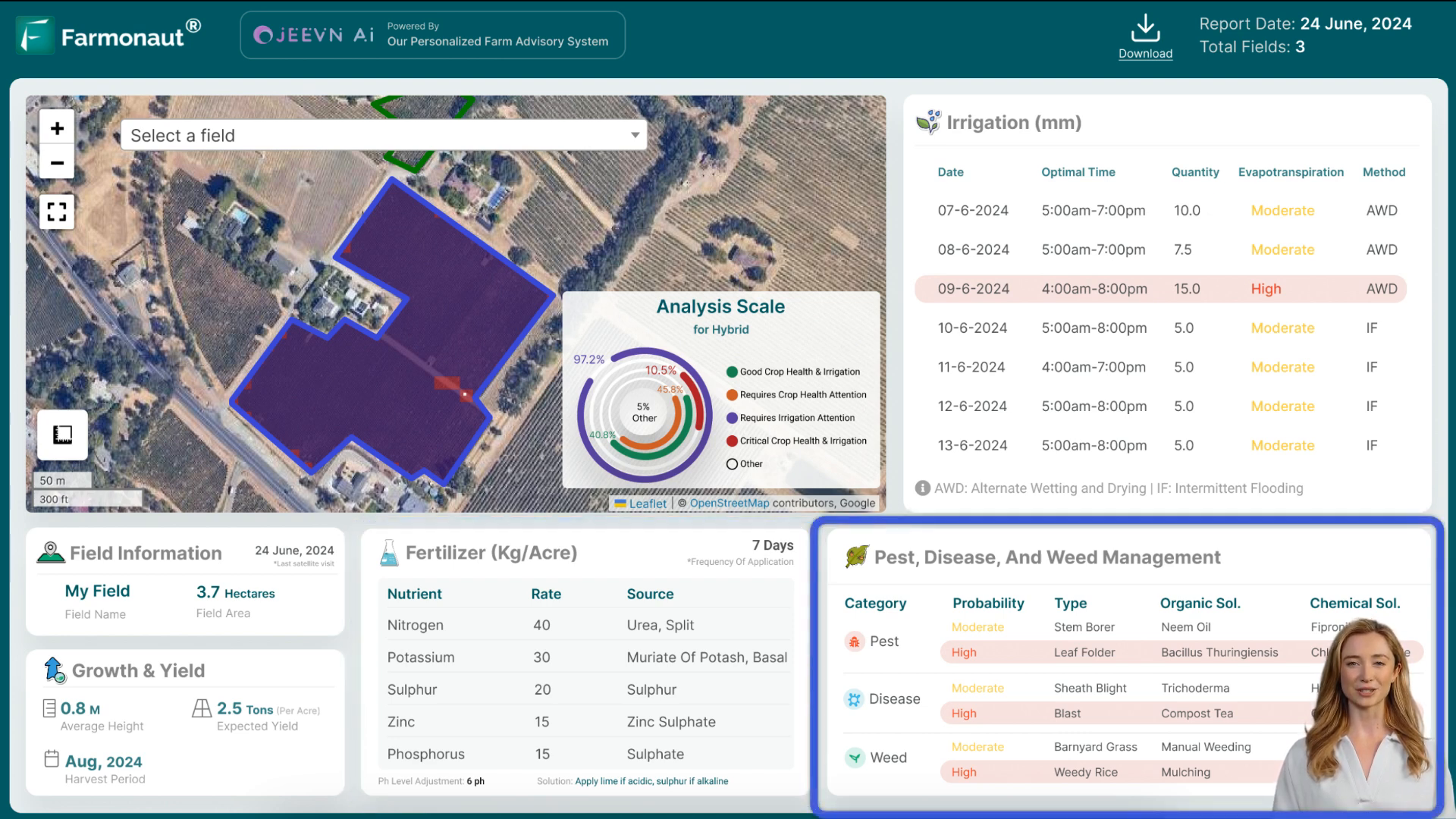
Early detection and intervention are key to minimizing damage and reducing reliance on chemical pesticides. This not only lowers costs for Texas wheat farmers but also promotes environmentally friendly farming practices, aligning with the growing demand for sustainable agriculture in the state.
💧 Efficient Water Management: Conserving Texas’s Precious Resource
Efficient water usage is essential for sustainable farming, especially in Texas where water scarcity can be a significant challenge. JEEVN AI uses a combination of weather data, soil moisture levels, and crop requirements to determine the optimal irrigation schedule for wheat crops.
By providing precise recommendations on when and how much to water, JEEVN AI helps Texas wheat farmers conserve water resources and prevent over or under irrigation. This is particularly valuable in regions like the Texas Panhandle, where the Ogallala Aquifer is a critical but diminishing water source for agriculture.
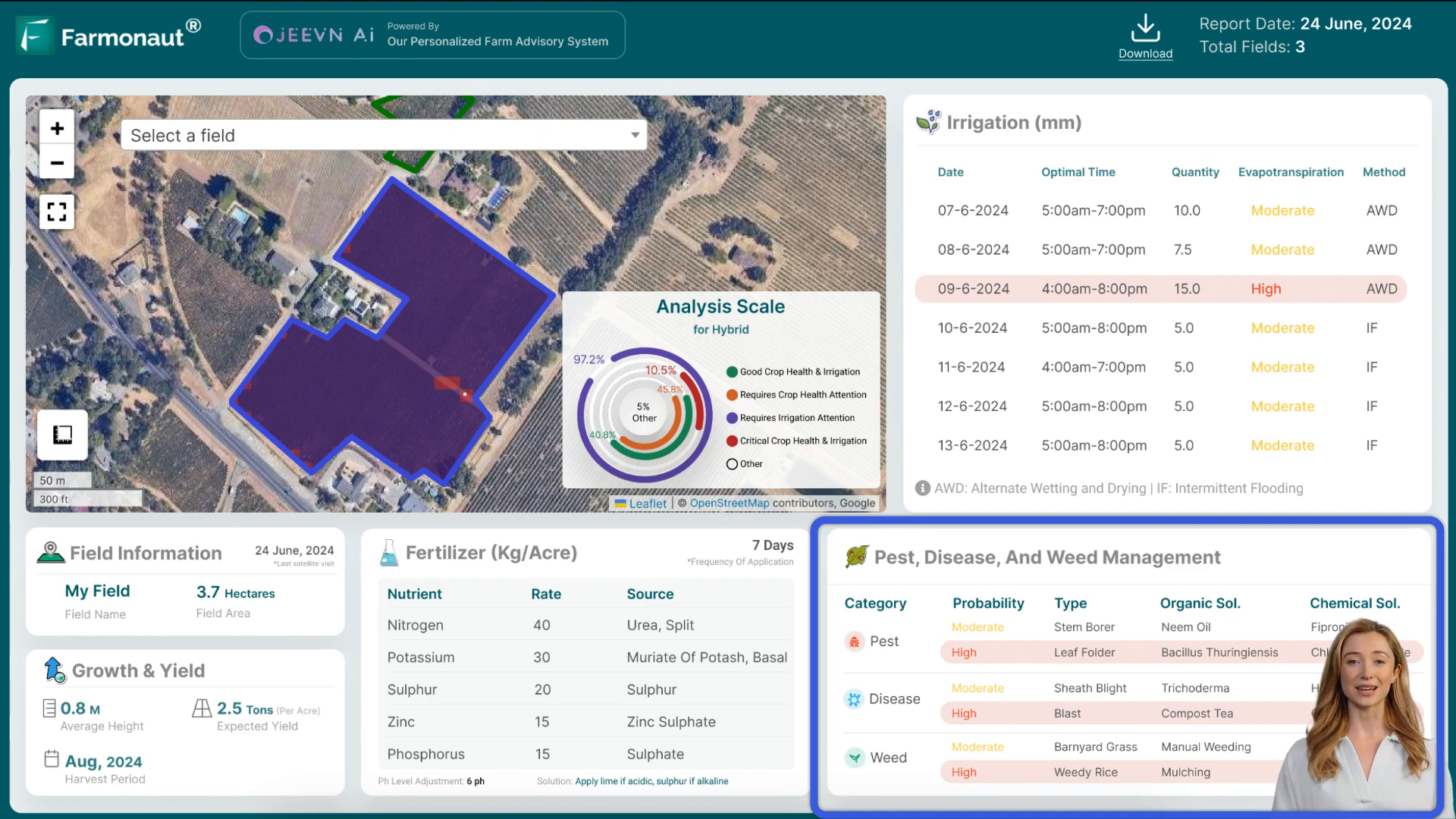
JEEVN AI ensures that wheat crops receive the right amount of water at the right time, promoting healthy growth while conserving Texas’s precious water resources. This approach not only benefits individual farmers but also contributes to the long-term sustainability of wheat farming in the state.
📈 Impact on Crop Growth and Yield: Boosting Texas Wheat Production
The impact of JEEVN AI on wheat crop growth and yield in Texas is profound. By ensuring that the soil has the right balance of nutrients and maintaining optimal soil pH, JEEVN AI sets the foundation for healthy wheat growth. But it goes beyond that, providing critical predictions on the growth and yield of wheat crops.
JEEVN AI can forecast the height of wheat crops, the expected yield per acre, and the anticipated time until harvest. For Texas wheat farmers, who produced 50.4 million bushels in 2020, these predictions can be game-changing. By leveraging these insights, farmers can make informed decisions to enhance their productivity and plan their activities more efficiently.
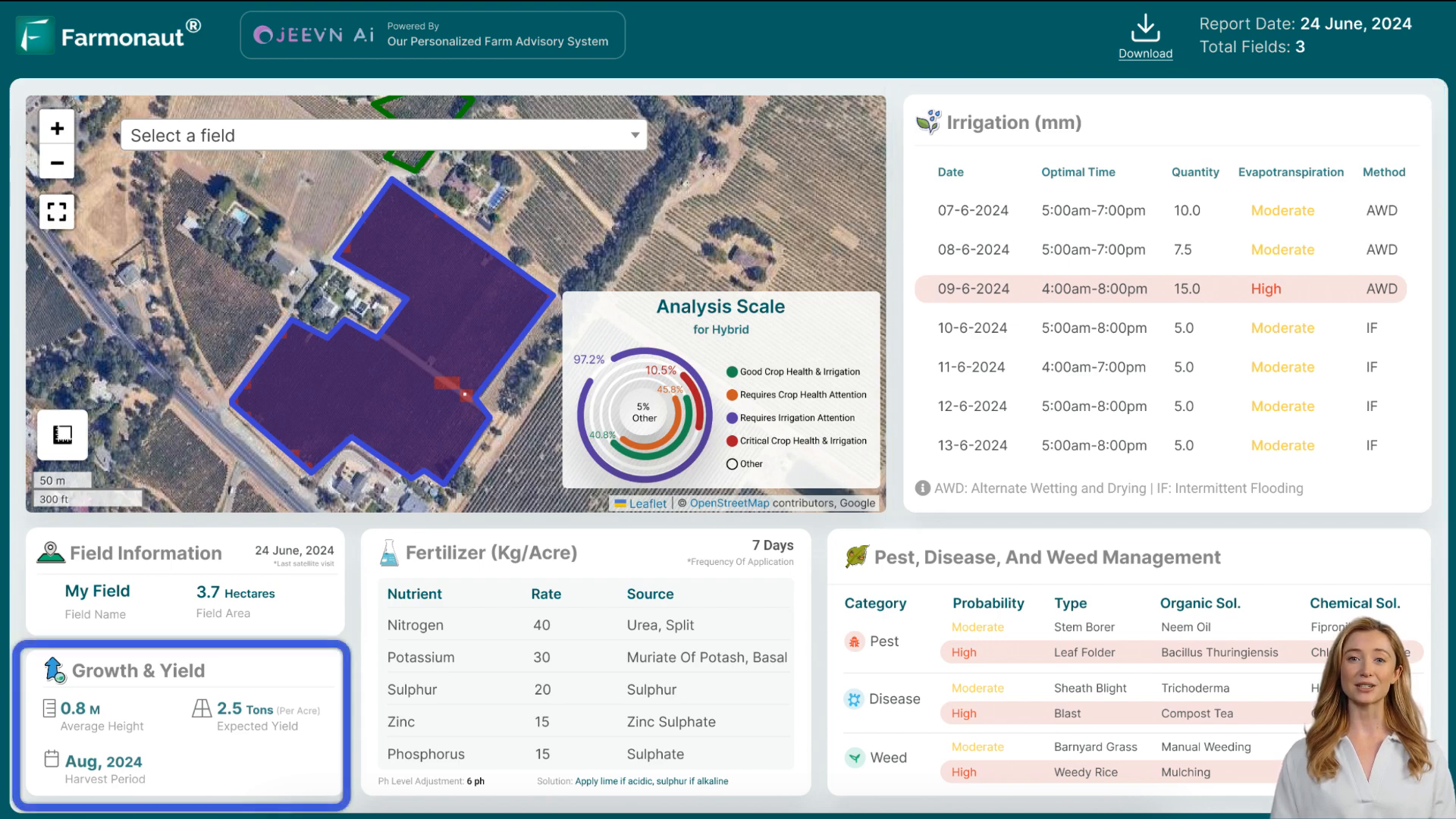
Regular monitoring and timely interventions guided by JEEVN AI can result in healthier wheat crops with fewer instances of stress and disease. This leads to higher quality wheat and increased market value, potentially boosting the $188 million that Texas wheat contributed to the state’s economy in 2020.
🚀 Embracing the Future of Wheat Farming in Texas
JEEVN AI is more than just a farm advisory tool; it’s a game-changer for the Texas wheat industry. By leveraging the power of artificial intelligence and satellite technology, JEEVN AI provides Texas wheat farmers with the insights and recommendations they need to optimize their farming practices and achieve greater success.
In a state where agriculture is not just a business but a way of life, JEEVN AI represents the future of farming. It offers Texas wheat farmers the opportunity to say goodbye to guesswork and embrace data-driven decision-making, potentially increasing yields, reducing costs, and promoting sustainable practices.

As Texas continues to play a crucial role in U.S. wheat production, tools like JEEVN AI will be instrumental in maintaining the state’s competitive edge. By adopting Farmonaut’s Satellite-AI Based Farm Intelligence, Texas wheat farmers are not just keeping pace with technological advancements – they’re leading the charge into a new era of smart, efficient, and sustainable agriculture.
❓ Frequently Asked Questions about JEEVN AI for Texas Wheat Farmers
1. How does JEEVN AI adapt to the diverse growing conditions across Texas?
JEEVN AI integrates local farm information and regional data to provide recommendations tailored to specific areas of Texas, accounting for variations in soil type, climate, and typical pest pressures across the state.
2. Can JEEVN AI help Texas wheat farmers deal with extreme weather events?
Yes, JEEVN AI uses weather data to predict potential extreme events and provides recommendations to mitigate their impact on wheat crops, which is particularly valuable given Texas’s susceptibility to droughts and sudden temperature changes.
3. How does JEEVN AI contribute to water conservation efforts in Texas?
By providing precise irrigation schedules based on real-time data, JEEVN AI helps Texas wheat farmers optimize their water usage, which is crucial for conserving resources like the Ogallala Aquifer.
4. Can JEEVN AI help Texas wheat farmers comply with environmental regulations?
Yes, JEEVN AI’s recommendations for fertilizer and pesticide use are designed to be efficient and environmentally friendly, helping farmers stay within regulatory guidelines while maintaining productivity.
5. How does JEEVN AI account for the specific varieties of wheat grown in Texas?
JEEVN AI can be customized to account for the characteristics and needs of specific wheat varieties commonly grown in Texas, such as TAM 111 or TAM 112, ensuring recommendations are variety-specific.




